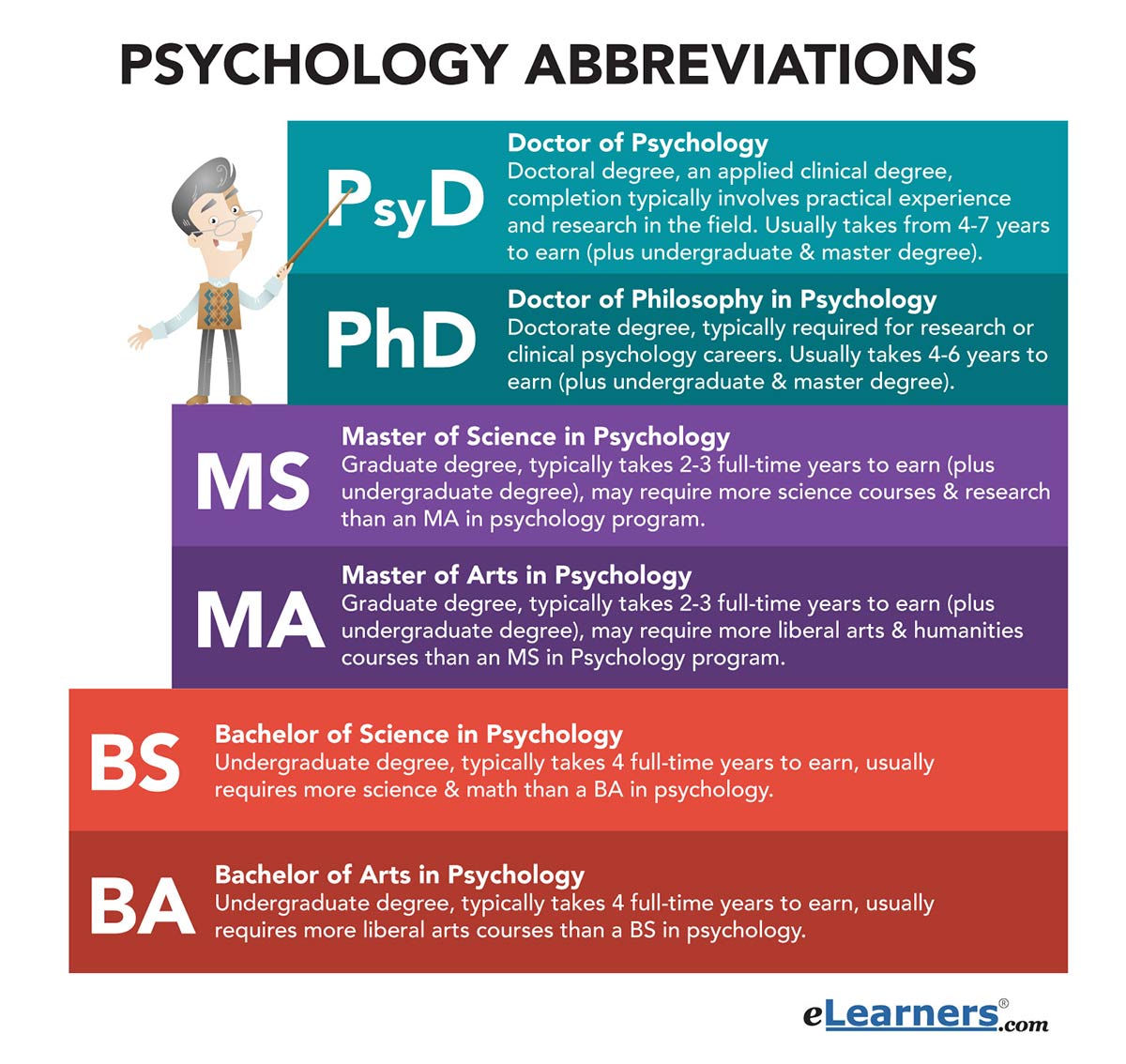
What can you do with a psychology bachelor degree – What can you do with a psychology bachelor’s degree? The answer is: quite a lot! A psychology degree equips you with a diverse set of skills and knowledge that are highly sought after in various industries. From healthcare and education to business and technology, psychology graduates are making a significant impact across the professional landscape. This degree offers a unique blend of critical thinking, communication, and analytical skills, making it a valuable asset for a wide range of career paths.
Beyond traditional psychology roles, a psychology degree opens doors to fields you might not expect. Understanding human behavior and motivation is crucial in many industries, and psychology graduates are well-positioned to thrive in these dynamic environments. This article will explore the diverse career paths available to psychology graduates, delve into the benefits of pursuing advanced education, and highlight the transferable skills that make this degree a valuable investment.
Career Paths
A psychology bachelor’s degree opens doors to a wide range of career paths, both within and outside the field of psychology. The skills and knowledge gained in a psychology program are highly valuable and transferable to various industries.
Careers in Psychology
Psychology graduates can pursue careers directly related to the field. These roles often involve applying psychological principles to understand and address human behavior, thoughts, and emotions.
- Clinical Psychologist: Clinical psychologists are mental health professionals who diagnose and treat mental, emotional, and behavioral disorders. They provide therapy, conduct assessments, and develop treatment plans for individuals, couples, families, and groups.
- Counseling Psychologist: Counseling psychologists focus on helping individuals cope with life challenges, improve their well-being, and enhance their personal and professional development. They provide therapy, guidance, and support to individuals experiencing issues related to relationships, career, education, and personal growth.
- School Psychologist: School psychologists work in educational settings to promote the academic, social, and emotional well-being of students. They conduct assessments, provide counseling, and collaborate with teachers, parents, and administrators to address students’ learning difficulties, behavioral problems, and mental health concerns.
- Forensic Psychologist: Forensic psychologists apply psychological principles to legal issues, such as criminal investigations, court proceedings, and corrections. They conduct psychological evaluations, provide expert testimony, and assist with criminal profiling, risk assessment, and treatment of offenders.
- Industrial-Organizational Psychologist: I-O psychologists study and apply psychological principles to the workplace. They focus on improving employee motivation, productivity, and job satisfaction. They conduct research, design training programs, and develop selection and assessment tools for organizations.
Careers in Other Fields, What can you do with a psychology bachelor degree
The skills and knowledge gained in a psychology program are highly transferable to various industries outside of psychology. These careers often involve working with people, understanding human behavior, and using critical thinking and problem-solving skills.
- Human Resources: Psychology graduates are well-suited for roles in human resources, where they can apply their understanding of human behavior and motivation to recruit, train, and manage employees. They may work as HR specialists, recruiters, or training and development professionals.
- Marketing and Sales: Psychology graduates can leverage their knowledge of consumer behavior and persuasion to succeed in marketing and sales roles. They may work as market research analysts, advertising specialists, or sales representatives.
- Education: Psychology graduates can work as teachers, tutors, or educational consultants. They can apply their understanding of learning and development to create effective teaching strategies and support students’ academic and personal growth.
- Social Work: Psychology graduates can pursue careers in social work, where they can use their knowledge of human behavior and social issues to advocate for vulnerable populations and provide support services. They may work as case managers, social workers, or community outreach specialists.
- Research: Psychology graduates with a strong research background can pursue careers in research, where they can contribute to the advancement of knowledge in psychology and related fields. They may work as research assistants, data analysts, or research scientists.
Advanced Education

A bachelor’s degree in psychology provides a strong foundation, but pursuing an advanced degree can open doors to specialized roles and research opportunities. Master’s and doctoral programs offer in-depth knowledge, advanced skills, and greater professional flexibility.
Benefits of Advanced Degrees
Earning a master’s or doctoral degree in psychology can significantly enhance career prospects. These degrees provide a deeper understanding of psychological theories and research methods, equipping graduates with the necessary skills to conduct independent research, analyze data, and apply psychological principles to diverse settings. Advanced degrees also lead to higher earning potential and greater job security, especially in specialized areas of psychology.
Specializations in Psychology
There are numerous specialized areas within psychology that require advanced degrees. Here are some examples:
- Clinical Psychology: This specialization focuses on the diagnosis, treatment, and prevention of mental disorders. Clinical psychologists typically work in hospitals, clinics, private practice, or research settings.
- Counseling Psychology: This specialization focuses on providing therapy and guidance to individuals and families dealing with a wide range of personal and emotional issues. Counseling psychologists often work in schools, colleges, or community mental health centers.
- School Psychology: This specialization focuses on the psychological and educational needs of children and adolescents in school settings. School psychologists provide assessments, interventions, and support services to students, teachers, and families.
- Industrial-Organizational (I/O) Psychology: This specialization focuses on the application of psychological principles to the workplace. I/O psychologists work in organizations to improve employee performance, enhance productivity, and optimize organizational effectiveness.
- Forensic Psychology: This specialization focuses on the intersection of psychology and the legal system. Forensic psychologists provide expert testimony in court cases, conduct psychological evaluations of offenders, and assist with criminal profiling.
Research Opportunities
Advanced degrees in psychology open doors to a wide range of research opportunities. Graduates can pursue careers in academia, research institutions, government agencies, or private companies. Research opportunities include:
- Academic Research: This involves conducting original research and publishing findings in peer-reviewed journals. Academic researchers often teach courses and mentor students.
- Applied Research: This involves applying psychological principles to solve real-world problems in areas such as health, education, or business. Applied researchers often work in government agencies, non-profit organizations, or private companies.
- Clinical Research: This involves conducting research on the effectiveness of treatments and interventions for mental disorders. Clinical researchers often work in hospitals, clinics, or research institutions.
Skills and Knowledge
A psychology bachelor’s degree equips you with a comprehensive understanding of human behavior, cognition, and development, along with a range of valuable skills that are highly transferable to various industries. This knowledge and skill set can be applied in various professional settings, making psychology graduates desirable candidates across diverse fields.
Transferable Skills
The skills learned in a psychology program are highly applicable in various professional settings beyond traditional psychology roles. These skills are highly sought after by employers in diverse fields.
- Critical thinking and problem-solving: Psychology emphasizes analyzing complex situations, identifying patterns, and developing effective solutions. These skills are valuable in any profession that involves decision-making, problem-solving, and strategic thinking.
- Communication and interpersonal skills: Psychology involves understanding and communicating with diverse individuals, building rapport, and effectively conveying complex information. These skills are essential for roles requiring strong communication, teamwork, and client interaction.
- Research and data analysis: Psychology training involves conducting research, analyzing data, and drawing conclusions. This skill set is valuable in fields like marketing, healthcare, and education, where data-driven decision-making is essential.
- Adaptability and flexibility: Psychology emphasizes understanding individual differences and adapting approaches to diverse situations. This adaptability is highly valuable in dynamic work environments that require quick thinking and problem-solving.
Application of Psychology Principles
Psychology principles can be applied in diverse professional settings to improve performance, enhance productivity, and create positive work environments.
- Human Resources: Psychology principles can be applied to optimize employee selection, training, and performance management. Understanding motivation, leadership, and team dynamics can enhance workplace effectiveness.
- Marketing and Sales: Psychology principles can be used to understand consumer behavior, develop effective marketing campaigns, and improve sales strategies. Understanding motivation, persuasion, and decision-making processes can drive successful marketing efforts.
- Healthcare: Psychology principles are essential in healthcare settings to understand patient behavior, improve communication, and provide effective patient care. Understanding stress management, coping mechanisms, and therapeutic approaches can enhance patient well-being.
- Education: Psychology principles can be applied to create effective learning environments, understand student motivation, and develop personalized learning approaches. Understanding cognitive development, learning styles, and classroom management can optimize educational outcomes.
Professional Development: What Can You Do With A Psychology Bachelor Degree

A psychology bachelor’s degree opens doors to various career paths, but continuous professional development is crucial for career advancement and staying competitive in the field. This section explores resources and strategies for enriching your professional journey.
Professional Organizations and Resources
Joining professional organizations is an excellent way to connect with fellow psychologists, stay updated on industry trends, and access valuable resources. These organizations often offer networking opportunities, conferences, workshops, and publications.
- American Psychological Association (APA): The largest organization for psychologists in the United States, offering a wide range of resources, including publications, continuing education courses, and advocacy initiatives.
- Association for Psychological Science (APS): Focuses on advancing the science of psychology through research, education, and public outreach. Offers resources for students, professionals, and the general public.
- Society for Personality and Social Psychology (SPSP): Dedicated to the study of personality and social behavior. Provides networking opportunities, conferences, and publications.
- Association for Behavioral and Cognitive Therapies (ABCT): Focuses on evidence-based treatments for mental health disorders. Offers certification, training programs, and resources for professionals.
Networking and Building Relationships
Networking is essential for career success in any field, and psychology is no exception. Building relationships with other professionals can provide valuable insights, job opportunities, and support.
- Attend conferences and workshops: Conferences and workshops offer excellent opportunities to meet professionals in your field, learn about new research, and explore career options.
- Join professional organizations: Membership in professional organizations provides access to networking events, online forums, and mentorship programs.
- Volunteer your time: Volunteering in your community can help you build valuable skills and connect with other professionals. Consider volunteering at a mental health clinic, school, or community organization.
- Stay active on social media: Use social media platforms like LinkedIn to connect with professionals in your field and stay updated on industry news.
Professional Certifications and Licenses
Depending on your chosen career path, obtaining professional certifications or licenses can enhance your credibility and expand your career options. Here are some common certifications and licenses relevant to psychology careers:
- Licensed Psychologist (Psy.D. or Ph.D.): Requires a doctoral degree in psychology and passing an exam. Allows for independent practice and the ability to provide psychological services.
- Licensed Professional Counselor (LPC): Requires a master’s degree in counseling or a related field and passing an exam. Allows for providing counseling services.
- Certified School Psychologist (CSP): Requires a master’s degree in school psychology and passing an exam. Allows for working in schools to provide psychological services to students.
- Board Certified Behavior Analyst (BCBA): Requires a master’s degree in behavior analysis and passing an exam. Allows for working with individuals with autism and other developmental disabilities.
Real-World Applications

A psychology bachelor’s degree provides you with a strong foundation in understanding human behavior and cognition. This knowledge can be applied in a wide range of real-world settings, making it a versatile degree that can open doors to various career paths.
Psychology plays a crucial role in shaping various aspects of society, influencing how we live, work, and interact with one another. From healthcare and education to business and law, psychology provides valuable insights into human behavior and helps us create more effective and humane systems.
Impact of Psychology on Society
Psychology has a profound impact on various aspects of society, shaping how we approach healthcare, education, and business, among others.
| Field | Psychology Application | Example | Impact |
|---|---|---|---|
| Healthcare | Understanding and treating mental health conditions, promoting well-being, and developing effective interventions. | Cognitive behavioral therapy (CBT) is a widely used psychological treatment for anxiety and depression. | Improved mental health outcomes, reduced stigma surrounding mental illness, and increased access to effective treatments. |
| Education | Developing effective teaching methods, understanding student learning styles, and promoting positive classroom environments. | Educational psychologists help design curricula and assessments that cater to different learning needs. | Improved student learning, increased engagement in education, and a more supportive learning environment. |
| Business | Understanding consumer behavior, improving employee motivation and productivity, and creating effective marketing strategies. | Market research firms use psychological principles to understand consumer preferences and develop targeted marketing campaigns. | Increased business efficiency, enhanced customer satisfaction, and improved brand loyalty. |
Closing Notes
In conclusion, a psychology bachelor’s degree is a versatile and rewarding foundation for a successful career. Whether you pursue a traditional psychology path or explore other industries, the skills and knowledge gained from this degree will serve you well. By understanding human behavior, critical thinking, and research methods, you’ll be equipped to make a meaningful contribution to the world. Remember to explore your interests, seek out professional development opportunities, and network within the field to unlock your full potential.
FAQ Resource
What are some common job titles for psychology graduates?
Psychology graduates hold a variety of job titles, including research assistant, counselor, human resources specialist, market research analyst, and social worker.
Is a psychology degree good for a business career?
Yes, a psychology degree can be a great asset for a business career. Understanding consumer behavior, team dynamics, and organizational psychology can give you a competitive edge in fields like marketing, sales, and management.
What are the salary expectations for psychology graduates?
Salary expectations for psychology graduates vary depending on the specific career path and experience level. However, many psychology-related jobs offer competitive salaries and benefits.




